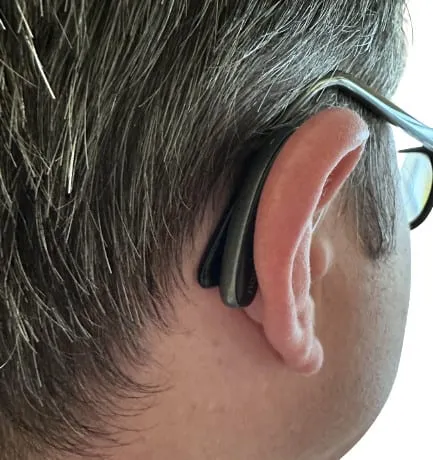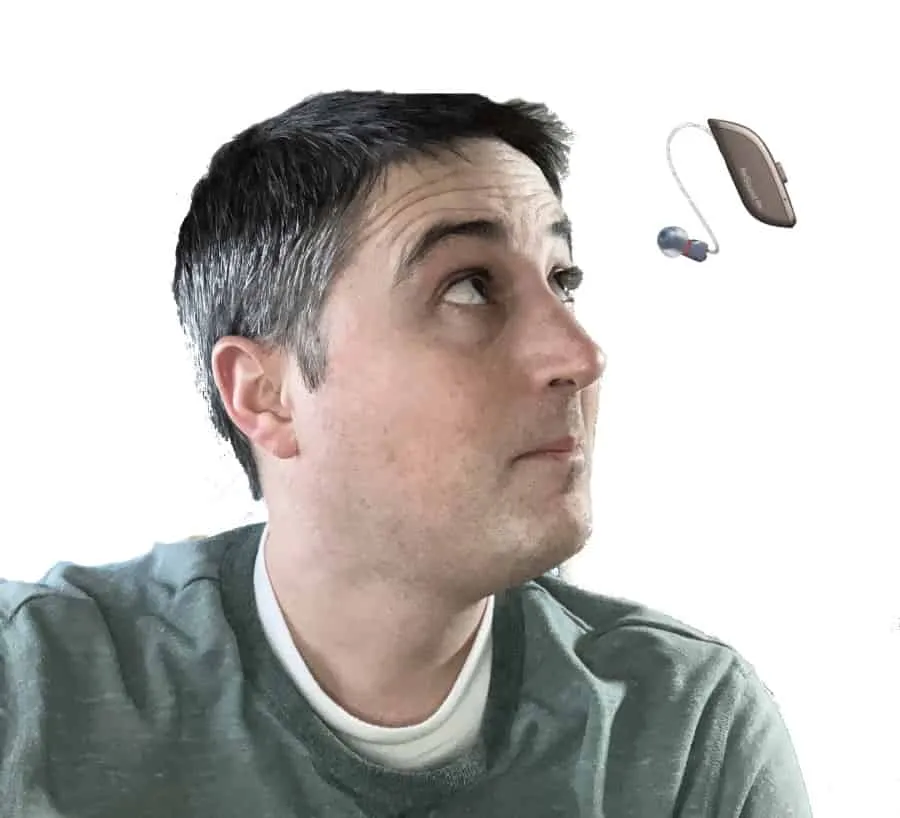As we age, our hearing abilities can begin to decline, making it difficult to communicate and fully participate in daily life. Unfortunately, traditional hearing aids can be quite expensive, making them out of reach for many individuals who need them. That is where over-the-counter (OTC) hearing aids come in. So can you get hearing aids without seeing an audiologist?
OTC hearing aids were recently introduced by the US FDA, and they provide a more affordable option for those suffering from mild to moderate hearing loss. With the FDA’s approval, these hearing aids can now be purchased without a medical exam, prescription, or professional fitting.
In this article, we will explore the pros and cons of OTC hearing aids. We will discuss their cost, availability, and ease of use, as well as the potential drawbacks of not having the personalized care and follow-up of traditional hearing aids.
If you or a loved one is struggling with hearing loss, this article will provide valuable information on the options available and the best way to improve your hearing.
Pros of OTC Hearing Aids
- Significantly cheaper than prescription hearing aids
- Designed for people with mild to moderate hearing loss
- More suitable for people who do not need hearing assistance in every listening situation
- More readily available than prescription devices

One of the primary benefits of OTC hearing aids is their affordability. The cost of traditional prescription hearing aids can often be prohibitively expensive, with prices ranging from several thousand dollars per device. OTC hearing aids, on the other hand, are designed to be more affordable and accessible, with an estimated average cost of $800 per pair of devices. This lower price point makes them a more viable option for individuals who may not be able to afford more expensive devices.
OTC hearing aids are also specifically designed to treat mild to moderate hearing loss, making them a suitable option for many individuals experiencing these types of hearing loss. They are not intended for those with severe or profound hearing loss, who may require more advanced prescription (professionally fit) hearing aids.
Another benefit of OTC hearing aids is that they are more suitable for people who do not require hearing assistance in every listening situation. While prescription hearing aids are designed to provide optimal hearing in a variety of complex settings (such as restaurants, board rooms, churches, courtrooms, and outside in wind), OTC hearing aids are best for those who only experience hearing difficulties in certain environments or situations (such as at home, watching TV, in small groups and in quiet environments).
Finally, OTC hearing aids are more readily available than prescription devices, with the ability to be purchased in retail stores, online, and in some hearing care clinics. This increased accessibility means that individuals can obtain hearing aids more quickly and easily than they would be able to with prescription devices.
OTC hearing aids do require more of the person. You have to learn how to clean and change the wax traps on your own following instructions, pair the devices to your cell phone on your own, connect them to an app, take your own hearing test via that app, and adjust the programming yourself. OTCs may not be for those with dementia, hand tremors, or who desire improved performance in background noise.
Overall, the affordability, targeted design, and increased availability of OTC hearing aids make them an attractive option for many individuals with mild to moderate hearing loss. However, it is important to note that OTC hearing aids may not be the best choice for everyone, and it is important to carefully consider their limitations before making a purchase.
Cons of OTC Hearing Aids
- Limited personalized care compared to prescription hearing aids
- Consumers may miss out on unique prescriptions to help them hear at their maximum potential
- Limited access to professional sizing, custom earpieces, counseling on proper use and maintenance, or follow-up fine-tuning
- Not suitable for children, who have specific needs related to their growth and development
While OTC hearing aids offer a more affordable and accessible option for people with mild to moderate hearing loss, they do come with some limitations compared to prescription hearing aids. Here are some cons to consider before purchasing an OTC hearing aid:

- Limited Personalized Care: Unlike prescription hearing aids, OTC hearing aids do not offer the same level of personalized care. Prescription hearing aids are customized to the specific needs of each individual based on their hearing test results and lifestyle. Audiologists can provide professional advice on selecting and fitting hearing aids, ensuring optimal performance and maximum benefit. OTC hearing aids, on the other hand, may not be suitable for everyone, and consumers may miss out on unique prescriptions that would help them hear at their maximum potential. Audiologists use real ear measures to ensure that hearing aids are set to the levels that research shows are best.
- Limited Access to Professional Sizing and Counseling: Consumers who purchase OTC hearing aids may not have access to professional sizing or custom earpieces, which can lead to discomfort or improper fit. In addition, these devices may not come with counseling on proper use and maintenance or follow-up fine-tuning, which is critical to ensure that the device is functioning properly and meeting the individual’s hearing needs.
- Not Suitable for Children: OTC hearing aids are designed for adults with mild to moderate hearing loss and are not suitable for children who have specific needs related to their growth and development. Children require specialized hearing aids that can adapt to their changing needs as they grow.
Importance of Consulting with Audiologists
While OTC hearing aids may seem like a quick and affordable solution, it’s important to understand the limitations and consider consulting with an audiologist or geriatric care expert before making a decision.
Audiologists are licensed, certified professionals who specialize in helping patients with hearing loss and issuing hearing aids as medical devices. They can provide accurate information on the degree and type of hearing loss, and recommend the most appropriate hearing aid for the patient’s communication needs. You can ask them about OTCs before you purchase one.

A diagnostic hearing test completed with an audiologist will provide accurate information on both the degree and type of hearing loss. This information can help determine whether OTC or prescription hearing aids are right for the patient’s communication needs.
It’s worth noting that hearing tests are covered by the majority of health insurance including medicare using the billing code 92557 for a comprehensive audiological evaluation.
This means that patients can have their hearing evaluated and receive professional recommendations without having to bear the full cost of the test.
Conclusion
OTC hearing aids have become a more affordable and accessible option for people with mild to moderate hearing loss. However, they do come with some limitations compared to prescription hearing aids, such as the lack of personalized care and access to custom fittings.
It is important to consult with an audiologist or geriatric care expert to determine the degree and type of hearing loss and whether OTC or prescription hearing aids are the best options to meet the patient’s communication needs. A diagnostic hearing test performed by an audiologist is a crucial step to help patients achieve the maximum benefit from their hearing aids.
Ultimately, the decision between OTC and prescription hearing aids should be based on the individual’s unique hearing needs and communication goals. If you go forward with OTC please do your research into the device you are ordering. Please see my top recommended hearing aids.

